Table of Contents
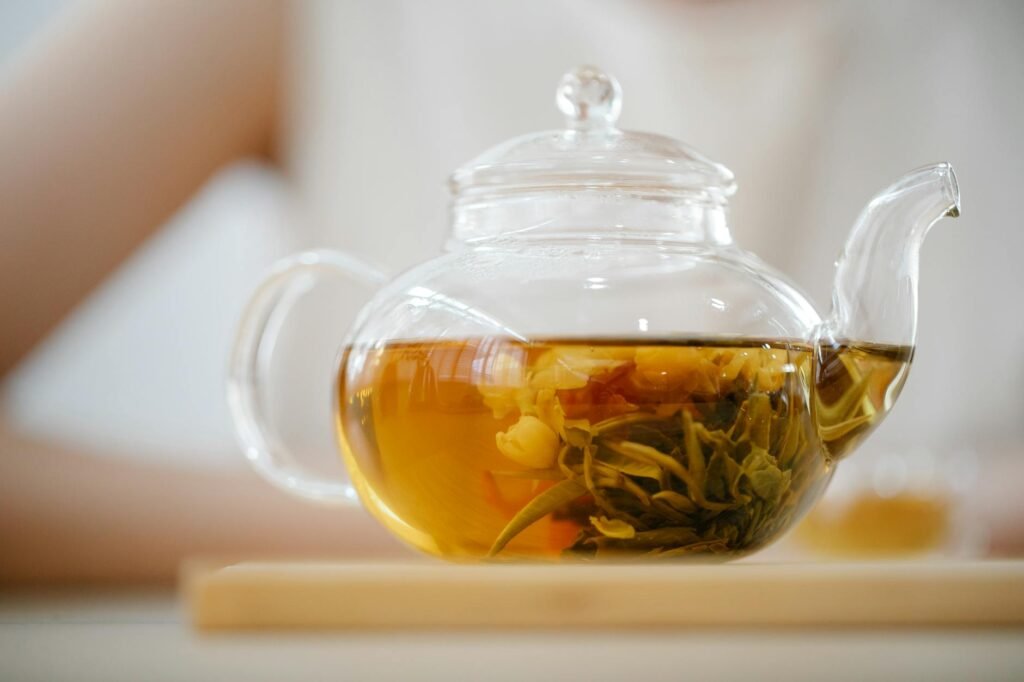
Introduction to Herbal Teas
Herbal teas have been cherished for centuries, offering a soothing alternative to traditional teas made from the Camellia sinensis plant. Unlike black, green, or oolong teas, herbal teas are derived from leaves, flowers, seeds, and roots of plants. This diversity opens up a world of flavours
Common herbal teas include chamomile, known for its calming properties; peppermint, often used to aid digestion; and ginger tea, celebrated for its anti-inflammatory effects. These teas provide an enjoyable drinking experience and carry a rich cultural significance, deeply rooted in the traditions of many societies around the globe. For instance, chamomile tea has been a staple in European herbal medicine, while ginger tea has been widely used in Asian cultures for its medicinal properties.
The rising interest in herbal teas can be attributed to the growing awareness of natural and holistic health practices. People are increasingly seeking alternatives to synthetic medications, and herbal teas offer a gentle yet effective way to support overall well-being. Additionally, the variety in herbal teas means there is something for everyone, catering to different tastes and health needs.
Historically, herbal teas have played a role in traditional medicine systems such as Ayurveda and Traditional Chinese Medicine (TCM). These practices have long recognised the therapeutic potential of herbs and have used them to treat a range of ailments, from digestive issues to stress relief. Today, the legacy of these ancient traditions continues, as modern research begins to validate many of the health claims associated with herbal teas.
In summary, the world of herbal teas is vast and varied, offering a delightful beverage and a connection to age-old wisdom and natural health remedies. As we explore the benefits of herbal teas, it becomes clear why they have stood the test of time and continue to grow in popularity.
1. Boosts Immune System
Herbal teas such as echinacea and elderberry have long been celebrated for their potential to enhance immune health. Echinacea, for instance, is renowned for its immune-boosting properties. A study published in The Journal of Phytomedicine found that echinacea can reduce the duration and severity of colds by stimulating the immune system. This herb achieves this by increasing the production of white blood cells, crucial in fighting infections.
Similarly, elderberry one of the ingredients in our Restora-tea, is another powerful herbal tea known for its immune-supporting benefits. According to research published in The Journal Nutrients, elderberry extract can significantly reduce the symptoms and duration of upper respiratory infections. The bioactive compounds in elderberry, such as flavonoids, contribute to its antiviral and anti-inflammatory effects, making it an excellent choice during cold and flu season.
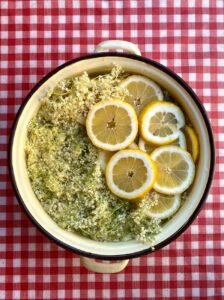
These findings underscore the potential of herbal teas as natural remedies for bolstering the immune system. For those interested in exploring more ways to boost their immunity, try our Restora-tea a blend of elderberry, ginger and Siberian ginseng. Incorporating herbal teas into your daily routine can be a simple yet effective strategy to support overall health. However, it is always advisable to consult with a healthcare professional before starting any new herbal regimen, especially for individuals with underlying health conditions or those who are pregnant or nursing.
2. Enhances Digestion
Herbal teas, particularly peppermint and ginger tea, have long been celebrated for their digestive benefits. These natural remedies can significantly alleviate common digestive issues such as indigestion, bloating, and nausea. Peppermint tea, for instance, contains menthol, a compound known for its antispasmodic properties, which helps relax the gastrointestinal tract muscles. This relaxation can ease the symptoms of irritable bowel syndrome (IBS) and promote smoother digestion.
Ginger tea, is renowned for its ability to combat nausea and vomiting. The active compounds in ginger, such as gingerols and shogaols, enhance gastric motility and accelerate stomach emptying. These effects can be particularly beneficial for individuals experiencing chronic indigestion or those prone to motion sickness. Studies have demonstrated that ginger can reduce the severity of nausea and improve overall digestive comfort.
Several scientific studies support these claims. For example, a study published in the Journal of Gastroenterology found that peppermint oil effectively reduced symptoms of IBS in patients. Similarly, research published in the Journal of Alternative and Complementary Medicine highlighted ginger’s efficacy in alleviating nausea and improving digestive health.
Looking to improve your digestive health? Try our Tip Top Tummy tea for relief from common digestive disorders and to maintain a healthy gut. Incorporating herbal teas like our Tip Top Tummy, peppermint, and ginger into your daily routine can be a natural and effective strategy for enhancing digestive health.
3. Reduces Stress and Anxiety
Herbal teas such as chamomile and lavender have long been recognised for their calming properties. These teas are often recommended for individuals seeking natural remedies to manage stress and anxiety. The soothing effects of these herbal infusions are supported by scientific research, which attests to their efficacy in promoting relaxation and mental well-being.
Chamomile tea, in particular, has been extensively studied for its tranquillising effects. A study published in the Journal of Clinical Psychopharmacology found that chamomile extract significantly reduced symptoms of generalised anxiety disorder (GAD) compared to a placebo. This demonstrates the potential of chamomile tea as a complementary approach to anxiety management.
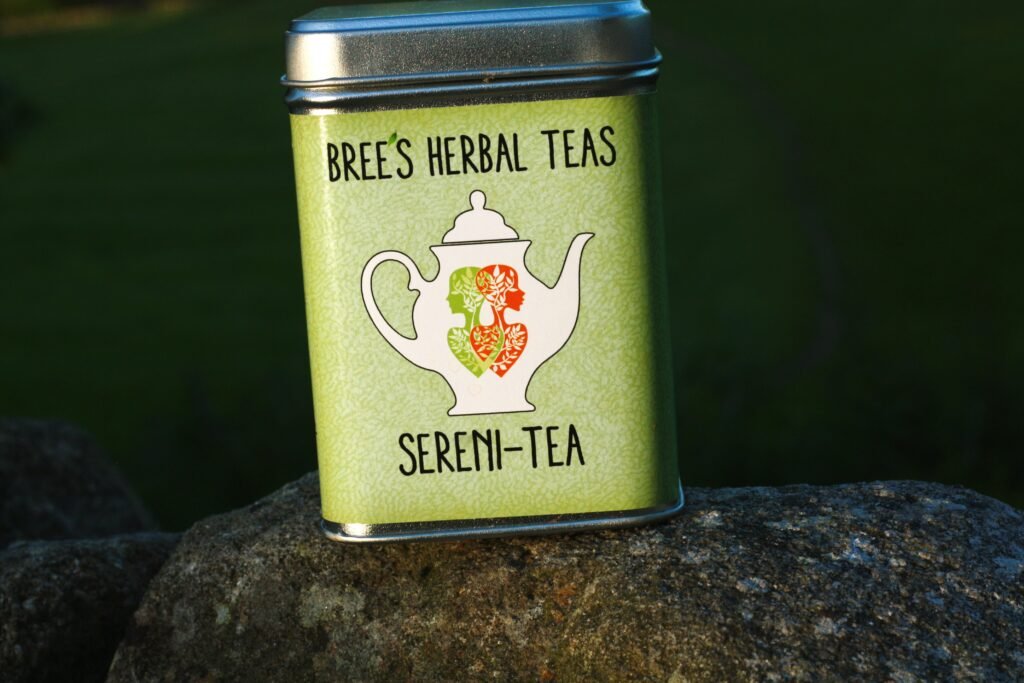
Similarly, lavender tea is celebrated for its stress-relieving properties. The research highlighted in the International Journal of Psychiatry in Clinical Practice revealed that lavender oil, a common component of lavender tea, can alleviate anxiety and improve mood. The study found that participants who consumed lavender experienced reduced anxiety levels and enhanced overall mental health.
In addition to these individual studies, broader reviews of herbal teas suggest their effectiveness in stress and anxiety reduction. According to a comprehensive review in the Journal of Evidence-Based Complementary & Alternative Medicine, various herbal teas, including chamomile and lavender, have been shown to possess anxiolytic properties, making them suitable for stress management.
For those looking to manage stress and anxiety with herbal teas, consider our Sereni-tea a blend of St John’s Wort, Lemon balm and Linden flowers. For further reading, refer to scientific studies and reputable mental health organisations like the Mental Health Foundation that offer valuable insights into the benefits of herbal teas.
4. Improves Sleep Quality
Herbal teas like valerian root and lemon balm have been heralded for their potential to enhance sleep quality. Valerian root, in particular, has a longstanding history of use as a natural remedy for insomnia and other sleep disorders. Scientific studies have revealed that valerian root can improve the speed of falling asleep and the quality of sleep itself. For instance, a study published in the journal Phytotherapy Research found that valerian root extract significantly reduced the time it took to fall asleep and improved overall sleep quality in participants.
Lemon balm, another popular herbal tea, has demonstrated efficacy in promoting restful sleep. A study by the University of Maryland Medical Center indicated that lemon balm, particularly when combined with other calming herbs like valerian, can reduce symptoms of restlessness and improve sleep patterns. The calming effects of these herbal teas are often attributed to their ability to increase levels of gamma-aminobutyric acid (GABA) in the brain, a neurotransmitter that helps to calm nervous activity.
Beyond the specific benefits of valerian root and lemon balm, incorporating herbal teas like our Sweet Dreams into your nightly routine can be a gentle and natural way to enhance sleep hygiene. Adopting a holistic approach to better sleep can involve a combination of lifestyle changes and dietary adjustments, which we explore further in our comprehensive guide to better sleep tips.
Overall, the evidence supporting the use of herbal teas for improving sleep quality is promising. Whether you struggle with occasional sleeplessness or chronic insomnia, considering herbal teas as part of your nightly routine might offer a natural and effective solution.
5. Supports Heart Health
Herbal teas, such as hibiscus one of the ingredients in our Har-tea and rooibos, have been shown to offer significant benefits for heart health. Numerous clinical studies highlight their role in lowering blood pressure and cholesterol levels, two crucial factors in maintaining cardiovascular health. Hibiscus tea, in particular, has gained attention for its antihypertensive properties. A study published in the Journal of Nutrition found that consuming hibiscus tea for six weeks resulted in a notable reduction in both systolic and diastolic blood pressure among adults with prehypertension or mild hypertension.
Rooibos tea, originating from South Africa, is another herbal tea that supports heart health. Rich in antioxidants like aspalathin and nothofagin, rooibos tea helps combat oxidative stress, which can damage cells and contribute to heart disease. Research published in the Journal of Ethnopharmacology indicates that regular consumption of rooibos tea can significantly improve lipid profiles by reducing LDL cholesterol and increasing HDL cholesterol, thus promoting a healthier cardiovascular system.
In addition to these benefits, herbal teas are generally caffeine-free, making them a suitable option for individuals who need to limit their caffeine intake. This attribute is particularly important for those with heart conditions, as excessive caffeine consumption can lead to increased heart rate and elevated blood pressure.
For more in-depth information on how to maintain heart health, you can explore our comprehensive articles on the subject, which cover various aspects of cardiovascular care, including diet, exercise, and lifestyle changes.
Incorporating herbal teas like our Har-Tea into your daily routine can be a simple yet effective way to support your heart health. The evidence from clinical studies strongly suggests that these natural beverages offer multiple benefits, making them a valuable addition to a heart-healthy lifestyle.
6. Provides Antioxidant Properties
Herbal teas such as rooibos and green tea are renowned for their potent antioxidant properties. Antioxidants play a crucial role in neutralizing free radicals, which are unstable molecules that can cause cellular damage and contribute to chronic diseases such as cancer, heart disease, and neurodegenerative disorders. By incorporating antioxidant-rich herbal teas into your diet, you can help bolster your body’s defence mechanisms.
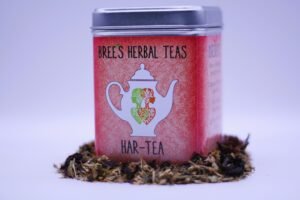
Rooibos tea, derived from the Aspalathus linearis plant, is particularly high in antioxidants like aspalathin and nothofagin. These compounds have been shown to combat oxidative stress, thereby reducing inflammation and supporting overall health. Similarly, green tea is abundant in catechins, particularly epigallocatechin gallate (EGCG), which has been extensively researched for its antioxidant activity and potential health benefits.
Several studies underline the efficacy of antioxidants present in herbal teas. For instance, a study published in the Journal of Agricultural and Food Chemistry found that the polyphenols in green tea significantly reduce the risk of cardiovascular disease. Another research article from the International Journal of Food Science & Technology highlighted rooibos tea’s ability to protect cells from oxidative damage.
Exploring foods rich in antioxidants can be beneficial for those seeking to boost their antioxidant intake. Check out our articles on the benefits of antioxidants for more insights into a healthy lifestyle.
In summary, the antioxidant properties of herbal teas like rooibos and green tea offer significant health advantages by mitigating the harmful effects of free radicals. Regular consumption of these teas, supported by scientific evidence, can contribute to a healthier lifestyle and reduce the risk of chronic diseases.
7. Aids in Weight Management
Herbal teas have gained popularity not only for their soothing properties but also for their potential role in weight management. Among the myriad of herbal options, green tea and dandelion tea stand out for their ability to assist in weight control through various mechanisms.
Green tea, in particular, is renowned for its metabolism-boosting properties. The presence of catechins, especially epigallocatechin gallate (EGCG), enhances thermogenesis—the body’s process of burning calories to produce heat. A study published in the American Journal of Clinical Nutrition found that green tea extract significantly increased the rate of calorie burning in participants. Additionally, green tea can help curb appetite, making it easier to manage caloric intake.
Dandelion tea, another beneficial herbal option, acts as a diuretic, helping the body eliminate excess water weight. This property can be particularly useful for those who experience water retention. Furthermore, dandelion tea is believed to improve digestion and reduce bloating, contributing to a more efficient metabolic process. While not as extensively researched as green tea, preliminary studies, such as one from the Journal of Complementary and Integrative Medicine, suggest that dandelion extracts may have a positive impact on lipid metabolism.
Incorporating herbal teas like green tea and dandelion tea into your daily routine can be a natural and effective strategy for supporting weight management goals. However, it is crucial to maintain a balanced diet and regular exercise regimen to achieve lasting results.
Safety and Considerations
When incorporating herbal teas into your daily routine, it is essential to prioritise safety and consider potential interactions with medications, allergies, and individual health conditions. Although herbal teas offer numerous benefits, they can also pose risks if not consumed appropriately. Understanding these risks and taking necessary precautions can help you enjoy herbal teas safely.
Firstly, some herbal teas can interact with prescription or over-the-counter medications. For example, St. John’s Wort tea is known to interact with antidepressants, birth control pills, and other medications, potentially reducing their effectiveness. It is crucial to consult with a healthcare provider before adding any herbal tea to your regimen, especially if you are taking medication.
Allergies are another important consideration. Herbal teas are made from various plants, which may trigger allergic reactions in some individuals. Common symptoms include itching, swelling, or difficulty breathing. If you have known allergies to certain plants, carefully read ingredient labels and avoid teas that contain those allergens.
Individual health conditions also play a significant role in determining the safety of herbal teas. Pregnant or breastfeeding women, for instance, should be cautious as some herbal teas can affect pregnancy or milk production. People with chronic health conditions such as diabetes, hypertension, or liver disease should also seek medical advice before consuming herbal teas, as certain herbs may exacerbate these conditions.
To ensure safe consumption, follow these guidelines:
- Start with small amounts to assess your body’s reaction.
- Limit consumption to 1-2 cups per day unless advised otherwise by a healthcare provider.
- Choose high-quality, reputable brands to minimise the risk of contamination with harmful substances.
- Store herbal teas properly to maintain their potency and safety.
Conclusion
In conclusion, incorporating herbal teas like Bree’s Herbal Teas into your daily routine can offer a multitude of benefits. From improving digestive health and boosting immunity to reducing stress and promoting better sleep, herbal teas provide a natural and enjoyable way to enhance overall well-being. The variety of available herbal teas means there is something for everyone, whether you are seeking a specific health benefit or simply looking to enjoy a flavourful beverage.
We encourage you to explore our diverse range of herbal teas and experiment with different blends to discover what works best for you. Whether you prefer a calming blend, the invigorating properties of peppermint, or the antioxidant-rich benefits of hibiscus, there is an herbal tea that can complement your lifestyle.
We invite you to share your experiences with herbal teas in the comments section below. Let us know which types you enjoy, any noticeable health improvements, and any tips you have for fellow tea enthusiasts. Your insights could inspire others to embark on their own herbal tea journey. Cheers to your health and happiness!
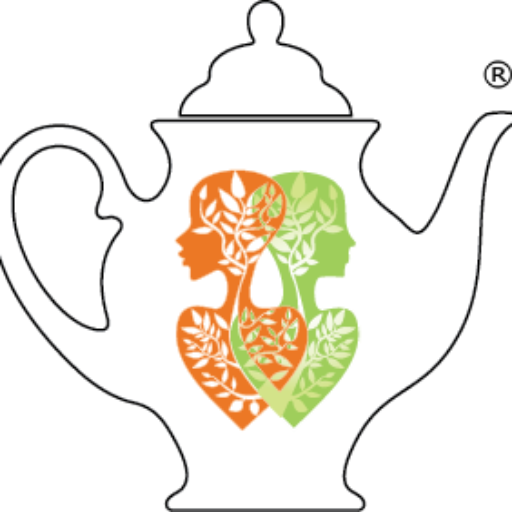

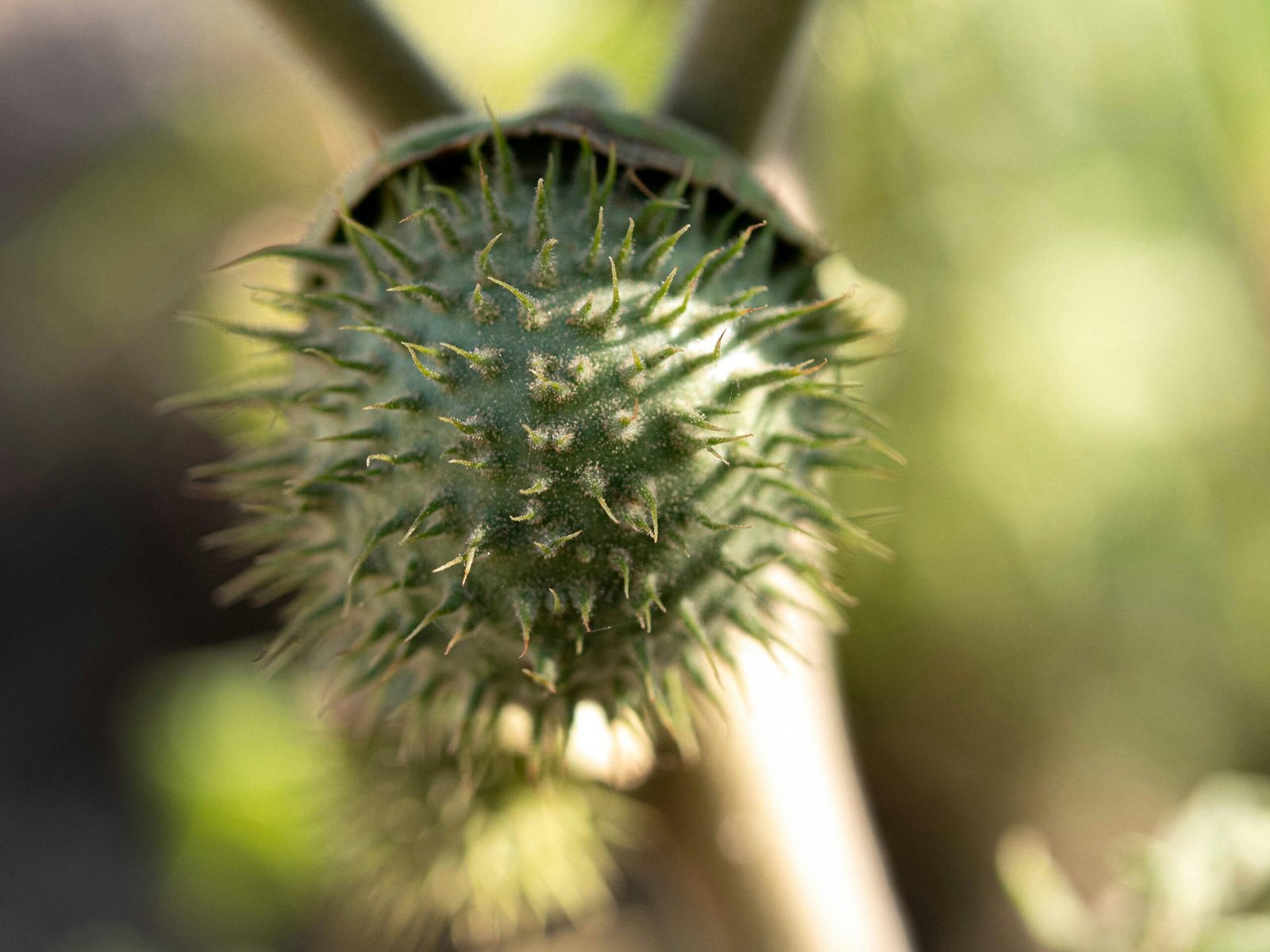


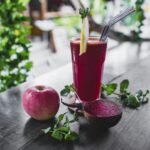
Leave a Reply